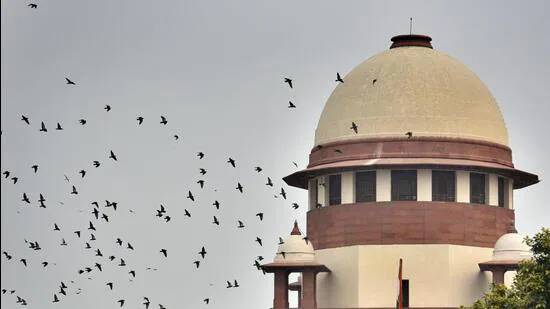The All India Bar Examination (AIBE XVII) was held on February 5, 2023 and attracted a large number of aspiring lawyers seeking to take the test and advance their goal of practicing law in India. The examination consisted of 100 multiple-choice questions covering a diverse range of legal subjects such as constitutional law, criminal law, family law, labor law and more. The results are expected to be released in the coming weeks and candidates who pass will be enrolled as advocates with the Bar Council of India (BCI) and authorized to practice law in the country.
The AIBE is a yearly requirement for all lawyers who wish to enroll with the BCI as advocates and assess their ability to practice law in India. However, the cost of the examination was a major concern for many students, with the fee set by the BCI and subject to change each year. Currently, the fee is Rs 3,500 for general/OBC candidates and Rs 2,500 for SC/ST candidates, which can still be a burden for many starting out in their careers. Additionally, the fee is non-refundable, even in cases where the examination cannot be taken due to unforeseen circumstances.
In addition to the AIBE fee, aspiring advocates had to also bear other expenses such as study materials, travel, accommodation and registration with their respective State Bar Councils. These expenses quickly added up, making the AIBE a much more expensive endeavor than initially perceived. For instance, the Delhi Bar Council Enrollment fee is Rs. 14,450 for fresh graduates and can go up to Rs. 35,150 for retired individuals or those above 45 years of age. The enrollment fee for other states such as Odisha, Kerala, Mumbai, Gujarat, Uttarakhand and more can also be substantial.
There were also reports of stores, such as those at Tis Hazari Court in Delhi and the Delhi High Court, refusing to sell bare acts individually during the AIBE and urging candidates to purchase the entire AIBE bundle instead. This raised questions about the affordability of the process, despite the BCI allowing candidates to carry downloaded copies of bare acts without notes. The cost of printing or photocopying bare acts quickly added up, as each act was a substantial document.
- Certificate Course in Labour Laws
- Certificate Course in Drafting of Pleadings
- Certificate Programme in Train The Trainer (TTT) PoSH
- Certificate course in Contract Drafting
- Certificate Course in HRM (Human Resource Management)
- Online Certificate course on RTI (English/हिंदी)
- Guide to setup Startup in India
- HR Analytics Certification Course
Many aspiring lawyers in India come from economically disadvantaged backgrounds and may struggle to afford the AIBE fee, creating a barrier to entry for individuals with potential in the legal profession. In fact, the annual fee of many law schools in the country is lower than the cost incurred by AIBE candidates. For example, the annual fee of the Government Law College in Mumbai is Rs 6,520.
Additionally, candidates raised concerns about data collected by the BCI during the examination in some centers, particularly the collection of biometrics without a reference data to verify it, as no Aadhar data was collected during AIBE or State Bar Council registration.
The Supreme Court’s Constitution Bench has reserved judgment on a batch of petitions challenging the validity of the AIBE, which may have a significant impact on the process of practicing law in India.
- Certificate Course in Labour Laws
- Certificate Course in Drafting of Pleadings
- Certificate Programme in Train The Trainer (TTT) PoSH
- Certificate course in Contract Drafting
- Certificate Course in HRM (Human Resource Management)
- Online Certificate course on RTI (English/हिंदी)
- Guide to setup Startup in India
- HR Analytics Certification Course

